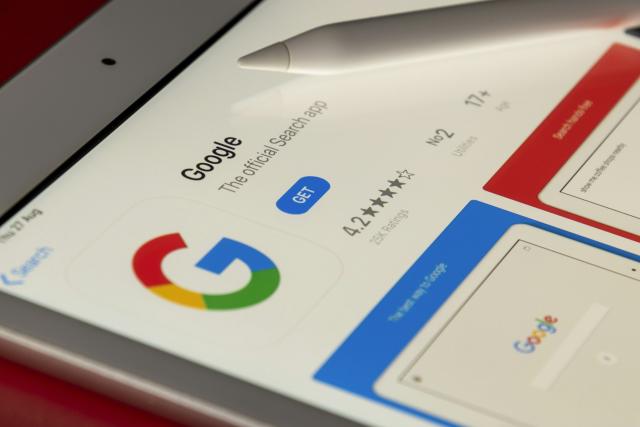
10 Free SEO Tools Every Small Business Should Be Using Today
Running a small business comes with its own set of challenges, and SEO (Search Engine Optimization) often tops the list. You know you need it to grow your online presence, but let’s face it—SEO can be overwhelming and, sometimes, costly. Thankfully, there are numerous free tools available that can help you optimize your website and boost your rankings on search engines, all without breaking the bank. In this article, we’ll explore 10 top free SEO tools that every small business should be using. These tools are designed to improve your site’s visibility, drive traffic, and ultimately help you succeed in the competitive digital world.
1. Google Analytics – Get Deep Insights Into Your Traffic
Google Analytics is a must-have tool for any business with an online presence. It provides comprehensive insights into how people are interacting with your site, what content they are most interested in, and where your traffic is coming from. By understanding these metrics, you can make data-driven decisions to improve your SEO strategy.
FAQ:
Q: How can Google Analytics help my SEO?
A: By analyzing traffic sources, user behavior, and bounce rates, you can identify what’s working on your site and what needs improvement. This helps you adjust your SEO tactics accordingly.
2. Google Search Console – Monitor Your Search Performance
Another free tool from Google, Search Console, gives you detailed information about how your site is performing in search results. It shows which keywords are bringing in traffic, your click-through rates (CTR), and any issues that might be affecting your ranking.
Key Feature: It alerts you about any problems Google faces when crawling or indexing your site, ensuring that search engines can read your content effectively.
3. Ubersuggest – Keyword Ideas and Competitor Analysis
Created by Neil Patel, Ubersuggest is a powerful tool for keyword research and competitor analysis. It shows keyword volume, difficulty, and trends, giving you an edge in finding new opportunities to rank for relevant terms.
FAQ:
Q: What makes Ubersuggest different from other keyword tools?
A: It’s easy to use, provides in-depth data, and even gives you insights into your competitors’ strategies, making it a valuable resource for small businesses.
4. MozBar – On-Page SEO Checker
MozBar is a free Chrome extension that lets you analyze SEO directly from your browser. You can check page authority, domain authority, and get instant on-page SEO analysis for any webpage.
Pro Tip: Use MozBar while browsing your competitors' sites to see what they're doing right (or wrong) and learn from their strategies.
5. AnswerThePublic – Content Idea Generator
Struggling with content ideas? AnswerThePublic visualizes search questions and auto-suggested phrases from search engines. It’s a fantastic tool to generate content ideas based on what people are actually searching for.
Key Feature: The tool provides a list of commonly asked questions around your keyword, which can be excellent for creating FAQ pages or blog posts.
6. Yoast SEO – SEO Optimization for WordPress
If your website is built on WordPress, Yoast SEO is a free plugin that simplifies on-page SEO. It helps optimize your content by analyzing your posts for readability, keyword usage, meta descriptions, and more.
FAQ:
Q: Is Yoast SEO suitable for beginners?
A: Absolutely. It provides clear guidelines and visual indicators, making it easy to optimize your pages even if you’re new to SEO.
7. GTmetrix – Test Your Website’s Speed
Site speed is crucial for both user experience and SEO rankings. GTmetrix allows you to test your website’s load time and gives suggestions on how to improve it. Faster websites rank better, and this tool ensures your site is up to par.
8. SEOquake – Comprehensive SEO Analysis
Another excellent browser extension, SEOquake, provides a variety of SEO metrics for any webpage. From keyword density to backlink analysis, it’s a comprehensive tool for small businesses that want to keep a close eye on their SEO health.
9. Screaming Frog – Website Crawler
Screaming Frog is a desktop-based tool that crawls your website and gives you detailed information about its SEO structure. It identifies broken links, missing metadata, and duplicate content—all of which can negatively impact your search rankings.
Pro Tip: Use Screaming Frog to audit your entire website regularly, ensuring there are no technical issues that could affect your SEO.
10. Canva – Visual Content Creation
While not strictly an SEO tool, Canva is an invaluable resource for creating eye-catching images and infographics. Visual content plays a big role in engaging your audience, and high-quality images can improve your site's appeal and reduce bounce rates.
Key Feature: Canva offers templates that make it easy to design professional-looking graphics, even if you don’t have a background in design.
Conclusion
SEO doesn’t have to be expensive or complicated. With the right free tools, even small businesses can optimize their online presence and compete with bigger players in the industry. From analyzing traffic with Google Analytics to enhancing content with Yoast SEO, these tools will empower you to take control of your SEO strategy and achieve better rankings.
Remember, SEO is an ongoing process. The more you learn and adapt, the more successful your efforts will be. Take advantage of these tools and start seeing improvements in your site's performance today.
Professional SEO reports and tools
Identify technical SEO issues and take action to improve the health and performance of your website. Leverage advanced AI tools for SEO to gain deeper insights, and optimize your online presence more effectively.
Related posts

Boost Your SEO with Faster Loading Times for Your Website
Discover the importance of website speed for SEO and how to optimize it for faster loading times. Cl...
2 years ago

How to Find Profitable Long Tail Keywords for SEO Success
Learn how to find profitable long tail keywords to drive targeted traffic. Our guide offers proven s...
2 years ago

Step-by-Step SEO Keyword Research Tutorial for Beginners
Kickstart your SEO journey with our step-by-step keyword research tutorial for beginners. Learn fund...
2 years ago